What can you do to help?
I have a septic system
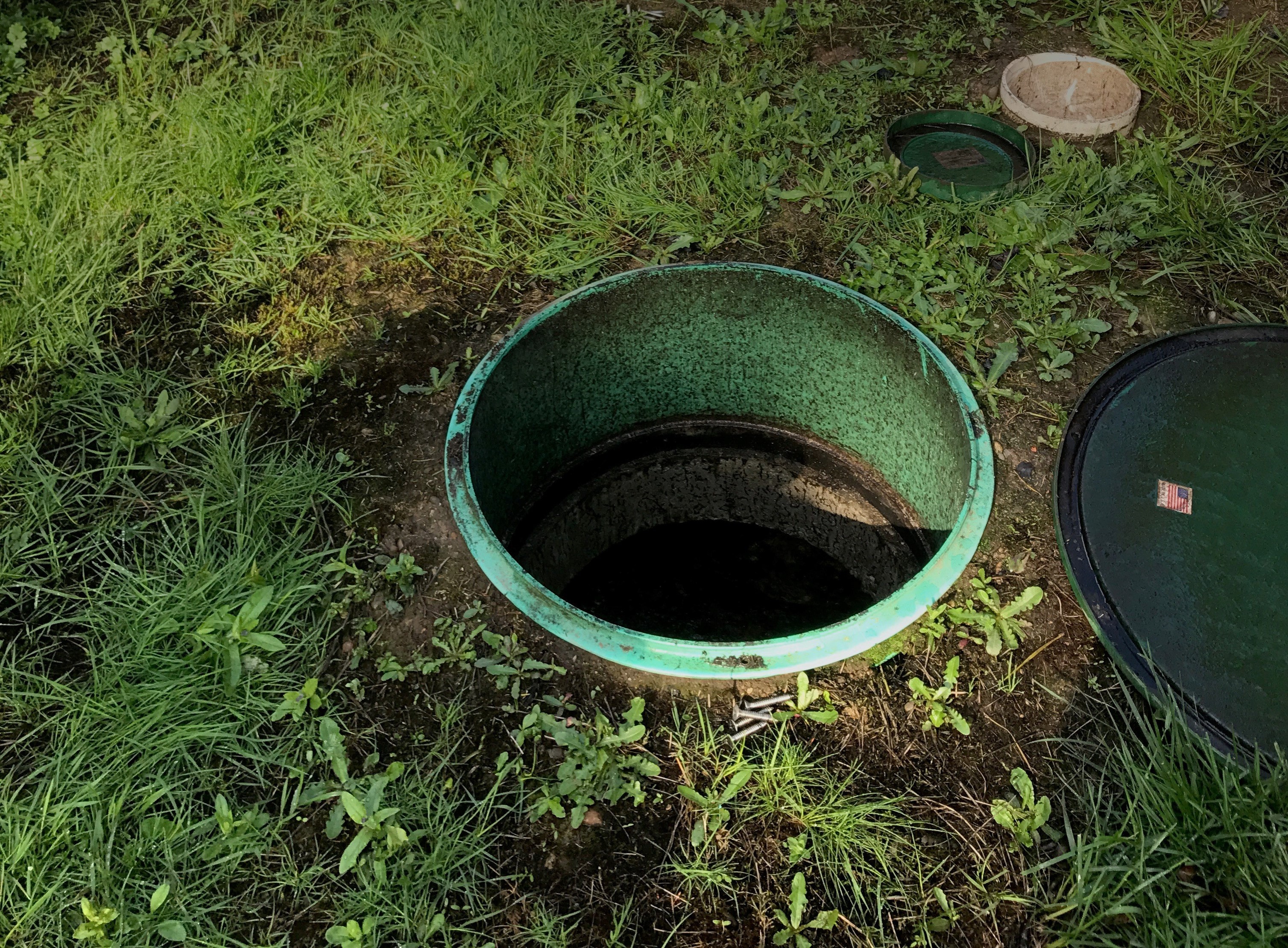
Septic maintenance rebate
Having your septic system regularly maintained saves you money in the long run and helps protect water and health in the community. However, we understand that it takes time and money right now. King County is offering a rebate of up to $500 for septic maintenance activities performed in Poverty Bay Shellfish Protection District. Limited funding for rebates. They are available on a first-come, first-serve basis until funding is gone.
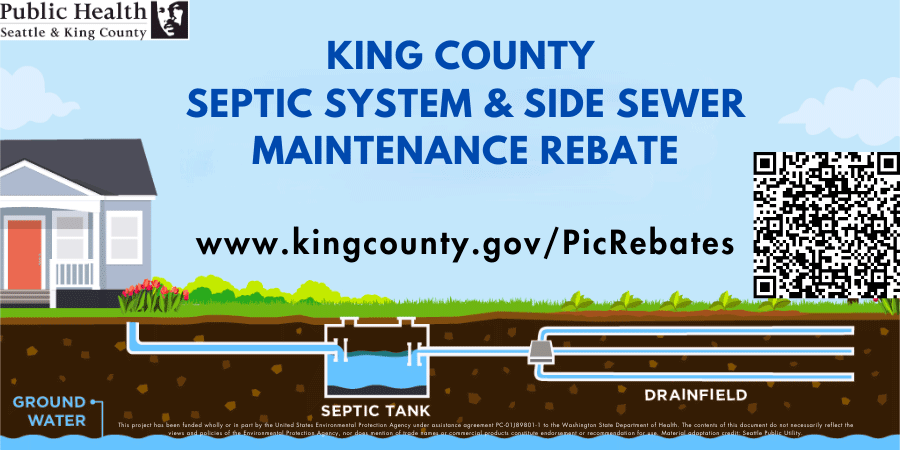
Septic system maintenance: Why and Tips
Septic inspection, minor repairs, and maintenance can immediately stop poop from spreading in your community. It is important to regularly inspect and pump your septic system. Learn about how to maintain your septic system.
Find information about your septic system at On-site Sewage System (OSS) records.
Know How Your Septic System Treat Your Poop: Septic 101 - YouTube video
Visit us at On-site Sewage System (OSS) Program - King County if you have any questions about your septic system maintenance.
Have a septic question?
Call the Septic Expert at 206-477-8177 to talk with a Septic Expert about your questions and concerns.
I have a side sewer
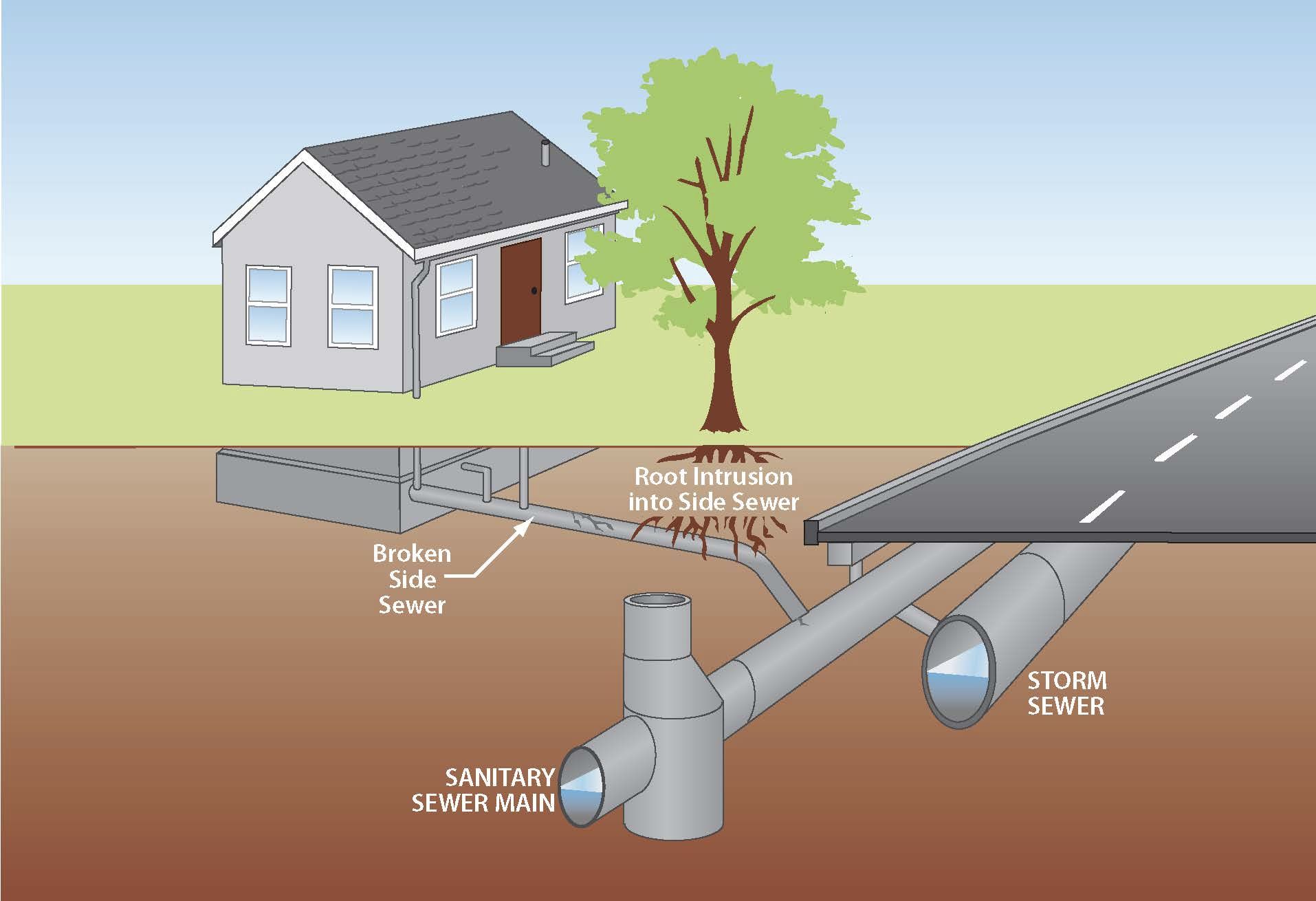
Inspect your side sewer before it's too late2
There are about 10,000 properties in Poverty Bay with sewer connections. If your utility bill includes a sewer charge, then your property has a sewer pipe that connects to your region's sewer system. Repairing or replacing side sewers can be expensive—averaging $5,000 to $15,000. No one wants sewage to back up in their toilets, sinks, bathtubs, or other building drains.
To avoid the surprise of costly repairs, we recommend property owners know the location and condition of their side sewer (if relevant). This is especially important if the side sewer is more than 25 years old and/or does not contain plastic PVC pipe.
Get more information about side sewer maintenance from your sewer district:
- Maintain your side sewer - King County
- Sewer Backups | Lakehaven Water and Sewer District, WA
- Resource Center | Midway Sewer District
2inspect.pdf (cityoftacoma.org)
Our side sewer repair rebate program is available to property owners in Midway and Lakehaven sewer districts. Scoping your side sewers is an eligible expense for eligible properties. Learn more about our side sewer repair rebate program.

I have a dog
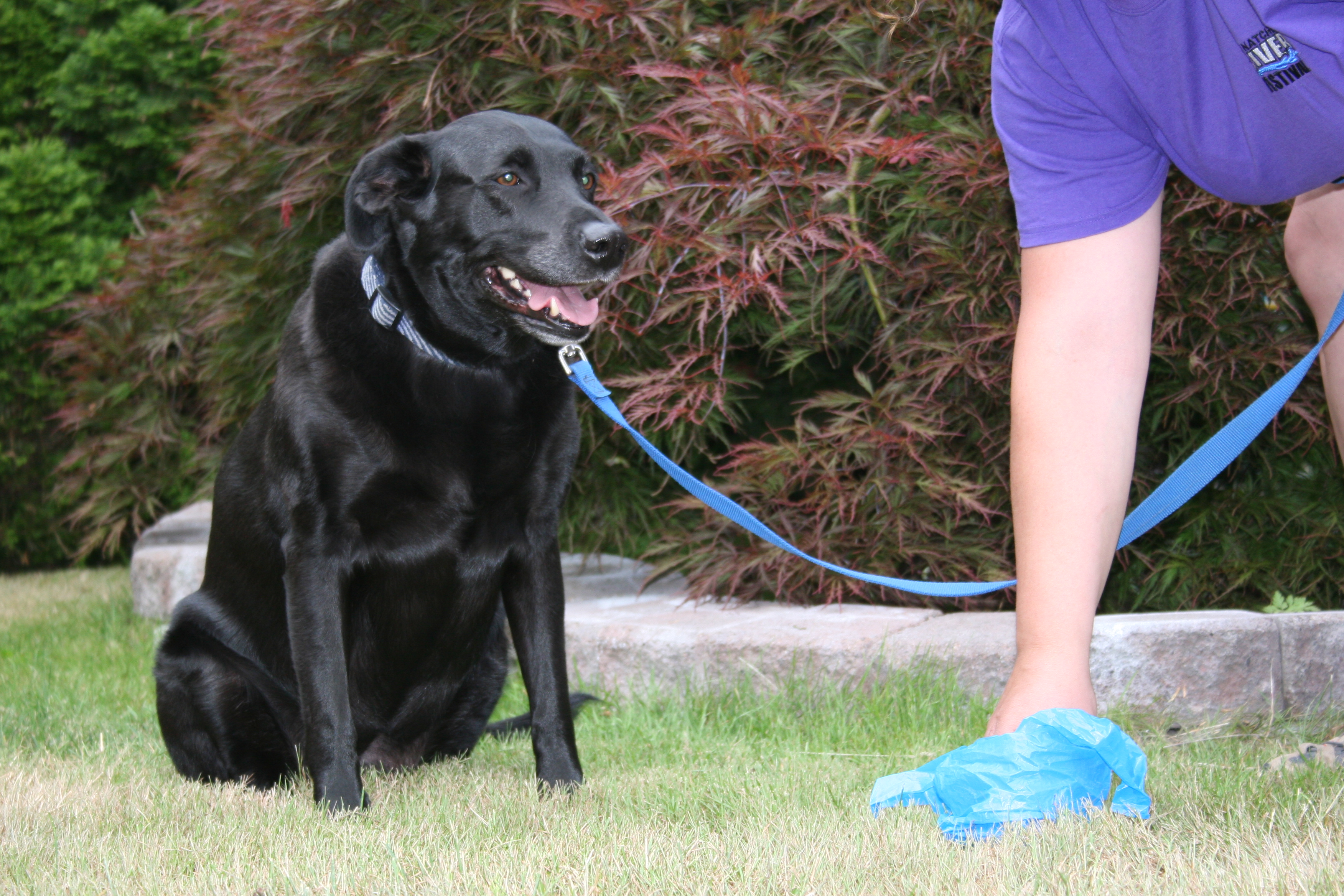
Poop in Poverty Bay
Poverty Bay Shellfish Protection District has many parks where we enjoy our time with our dogs. Often times, though, we have to watch our steps to avoid poop in parks, side streets, or someone's yard and gardens. Skipping over dog poop may not happen a lot to someone's walk on a day, but total dog poop amount is bigger than we think!
- The American Veterinary Medical Association reports 37.4 percent of Washington households own dogs.
- Poverty Bay Shellfish Protection District is estimated to have about 1,700 dogs.
- At the estimated 0.25 pounds of poop per dog, there's about 430 pounds of raw sewage every day in the Poverty Bay Shellfish Protection District area!
What is the solution?
It's that simple: scoop it, bag it, trash it
"Pick it up, pick it up, keep it green. You don't want to swim in poop" — Dog Doogity
Check out the Dog Doogity to do your dooty that is small but impactful for the Puget Sound!
Poop talk: Dog poop is not "washed off"
Dog poop may "disappear", but what's inside does not!
- Read the “Myth Buster” to learn more about pet waste management! (504 MB)
- Learn more about pet waste Problem & Solution in Poverty Bay (2.8 MB)
- How do I talk about pet waste with my neighbor in a smart way? (2.2 MB)
Almost 50% of dog owners say they don't pick up their dog's poop. A lot of them think that dog poop will naturally (and quickly) break down into the ground and do no harm as it's "natural". However, this is very far from the truth. Dog poop can take months to break down and it can be harmful to the soil, lawn in your backyard, water, and children who come into contact with zoonoses (zoo'-ohnos'-is), diseases transmitted from animals to humans. Bacteria, germs, and parasites in dog's poop affects human's health in many dangerous forms.
Additionally, the bacteria, viruses, germs, and parasites also travel through water system and harms marine animals. For example, In Poverty Bay, the number of fecal (poop) coliform exceeding guidelines by BEACH program (jointly run by Department of Ecology and the Department of Health) was about 3 times higher in 2004 and double the amount in 2005. Even though this program has not examined the relative contribution of pet waste to overall fecal coliform levels, the diseases in poop stay alive and transfer from our pets to marine wildlife (ex. otters). Undisposed dog poop can harm the health of marine or other types of wildlife.
I see urban wildlife
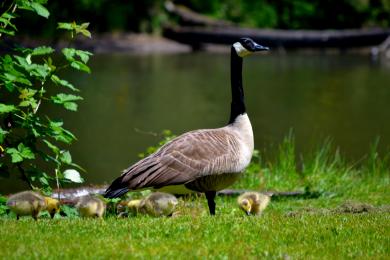
Don't touch wildlife
Animal diseases are commonly spread through feces (poop), bodily fluids, and direct contact between humans and wildlife. Wildlife poop may carry include viruses (ex. rabies), bacteria (ex. abscesses, Tyzzer's disease), parasites (mange, roundworm, tapeworm, brainworm, toxoplasmosis, swimmer's itch, bot fly larvae), chronic wasting disease, and fungi (blastomycosis).
Don't share food with wildlife
When animals congregate in an area, the potential for transmission increases, and this becomes a public health concern for everyone. Raccoon is one of the most common wildlife we can see in neighborhoods that can be a threat to our health, especially children's. At home, keep your garbage bins closed all the time to prevent wildlife from congregating near your property.
If you find animal poop near your neighborhood, please follow directions to dispose of wildlife poop to protect yourself and your family.
- How to clean up a raccoon latrine - King County
- Protect you and your pet from Raccoon Roundworm
- Nuisance wildlife | Washington Department of Fish & Wildlife
- Raccoons | Washington Department of Fish & Wildlife
Keeping waterfowl wild: migratory Canadian ducks and geese
About 153 different species of migratory birds visit King County3 between breeding and wintering grounds4. Feeding migratory birds is not a good idea for wildlife and humans alike.
- Migrating ducks and geese may "stay-over" through the winter decreasing their chances for survival in certain areas
- Vehicle-animal collisions increase along roadsides where animals are fed
- Feeding animals can create food dependency, creating smaller ranges and altering natural behavior.
- Summer offers adequate food for birds and mammals alike and oftentimes, feeding is unnecessary and can impact the timing of animals' natural movements or migration
3Washington NatureMapping - Resources & Products (naturemappingfoundation.org)
4NatureMapping Wildlife Distribution Maps (naturemappingfoundation.org)
 Translate
Translate
